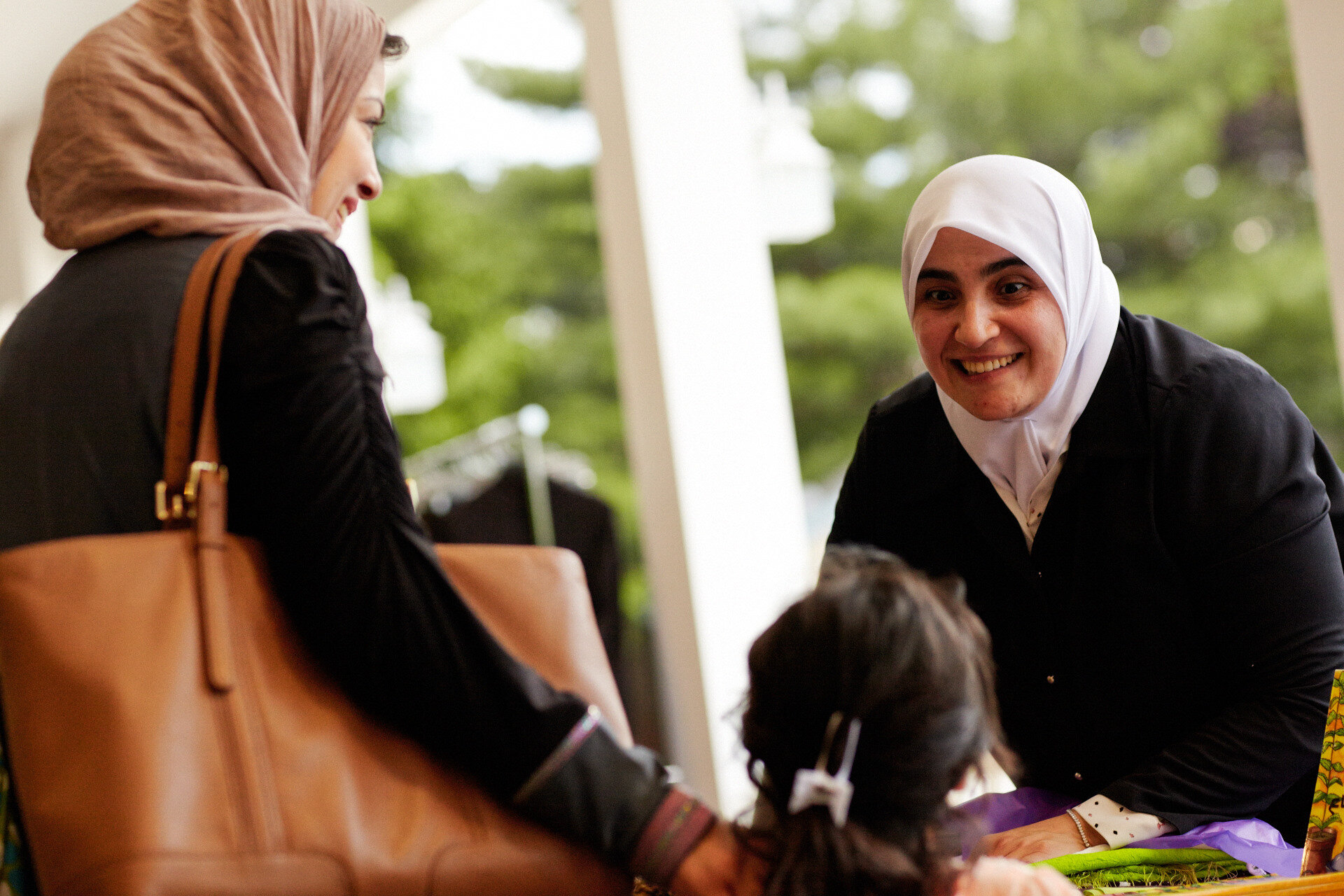"If we don't care, who will"
Raghad Bushnaq has been helping people in need in informal ways for at least a dozen years, but when refugees started arriving in the Washington D.C. area in large numbers in April 2016, she knew she had to ramp up her efforts in a more organized, systematic way. MOZAIC, a nonprofit based in Sterling, VA, was born.
Initially, the organization was helping seven refugee families. "I had a big feeling, like how are we going to manage, how are we going to fulfill the needs of these seven families,” Raghad recalls. “I couldn’t sleep at night, it was like a nightmare for me.” She recruited community members to help; after a few months, many left saying they couldn’t handle it. But Raghad felt a responsibility to the refugee families who faced so many difficulties.
She receives calls and texts 24/7 and is constantly connecting people, dealing with crises, and helping solve problems; in the hour that we were talking, her phone was abuzz with texts about a crisis that had erupted that morning with a refugee father and his three children.
Today, Raghad and her team of volunteers help almost 200 refugee families from Syria, Iraq, Afghanistan and elsewhere. “If we don’t stand with them, who will.”Often, Raghad drives the truck herself picking up donated furniture to furnish an apartment for a newly arriving refugee family. She cleans, sorts, unpacks, organizes – her calloused hands, which she tries to hide from George’s camera, betray the wounds of tireless hard work.“Sometimes I get angry,” Raghad admits, “I think I can’t take it anymore.” Seeing the toll this is taking on her health, family and friends have often asked her to take a break. “Stop, that’s enough,” they tell me. Like three weeks ago, when her knees were paining so much that she could hardly stand, her husband asked her to rest and not to drive. “Of course that didn’t stop me from doing many things,” Raghad says with her endearing laugh. "I did the whole preparation for the refugee bazaar from my couch,” she says smiling.She feels that the refugees are like her kids. She has five kids of her own, ranging in age from 19 to 27. “The way I have to advise my kids and look after their benefit, I have to look after the refugees too. Even if they don’t listen,” she says with a laugh.Raghad was born and raised in Damascus, Syria. She studied agricultural engineering in college and worked with bees and honey production. “I had 400 cells of bees,” she tells me. She also studied the Quran and Islam in Syria. She came to the US in 1989, two days after she got married, at the age of 19. Her husband worked in the government, and they initially lived in DC where Raghad satrted English classes. “I was too shy to speak English; it was very hard to understand, people speak so fast,” she says laughing. Soon she got pregnant with their first child; four more followed. They moved to Virginia and she home schooled her kids for several years, as her family traveled between the US and Saudi Arabia where her husband was working. Now she teaches Quran and Arabic, in addition to working full time in a volunteer capacity running Mozaic.
“I’m a person who loves life,” she says, “I’m very optimistic; I try to find the good in everything.”
Her positive outlook carries her through difficult days; as does her love for the Quran. Raghad reads one chapter every morning after Fajr prayers; she finishes the entire Quran every month.“The Quran is the fuel to my engine,” she says. If I don’t read it in the morning, I don’t have the energy for the day. I asked her about her favorite story or verse from the Quran. It's Chapter 21, verse 87, the story of Yunus. "It's about seeking refuge with Allah." "I was raised in a family where my father would refuse to sit at the dining table unless we have some needy person sitting with us. Even if there was nobody, he would call the guard outside or the one who takes care of the garden to come sit with us and eat. Every night our house was full, always full. He would tell my mother, we have 20 guests coming for dinner in two hours. We would prepare very nice food, no matter who they are - whether they are a businessman coming from France or Austria, or whether they are locals or very humble people. We set the table for them.”I asked Raghad if her father knows what she is doing now. “A little bit,” she said. Hopefully I will meet him soon and tell him.”Raghad’s parents are still in Damascus; her brother and sister are there too, and another sister is in Lebanon. The day we met, Damascus was being bombed. I ask about her family. “Alhumdulillah,” she says nervously. “They don’t want to leave,” she tells me. “I keep telling them I can apply for you for a green card, you can come. But they are attached to the land.”It amazes me that Raghad's own parents remain in Syria, and she has committed her life to helping those who escaped.In Syria, Mother’s Day is on March 21st; it was two days before I met with Raghad in her home for this interview. She was telling me that she had received so many happy mother’s day messages from refugees. “SubhanAllah. I was so happy,” she said beaming. The first person to call her was Fadi, from Syria, who 10 days prior had had surgery to deal with wounds in his left arm from being shot, “Every time he calls me, he says keefek ya ummi; it means, how are you my mother. It’s really touching, SubhanAllah.” Some people traveled far distances to come to a bazaar she was organizing in DC to see her. One girl when she hugged me, she cried and cried and cried; she made me cry,” Raghad tells me. “She said I miss my mother so much and I see you as my mother.”Raghad is developing the idea of Mozaic Kitchen, an opportunity for refugees to earn money by preparing and selling their specialty dishes at bazaars and through catering. At one such pre-Ramadan bazaar at the All Dulles Area Muslim Society (ADAMS) in Sterling, VA, tables were laden with all kinds of baklava, falafel and shwarma sandwiches, rice dishes with chicken and almonds, and jars of cheeses and grape leaves. Raghad provided many of the curios that were available for sale, even making some of the items herself, like the necklaces and small pouches of olive soap. She was on the move for several hours, making price labels for the food and answering questions from volunteers. She confided that her knees and back were paining her; I kept asking her to sit for a few minutes, following her around with a folding chair. She would sit for a moment, and then be up again greeting another guest with a warm hug.My problem is I work fast, everything is fast, fast; even I walk fast. So I told my husband, I have to train myself to walk slowly. It takes a lot of effort,” Raghad says laughing.There is little chance that she is going to slow down any time soon. Alhumdulillah for all those in need. Photographer: George KolotovPlease support Raghad's efforts to care for the needs of refugee families by donating to Mozaic: http://www.mozaicinc.org






